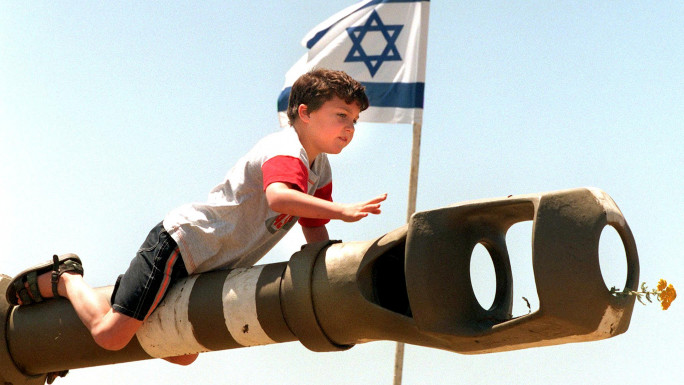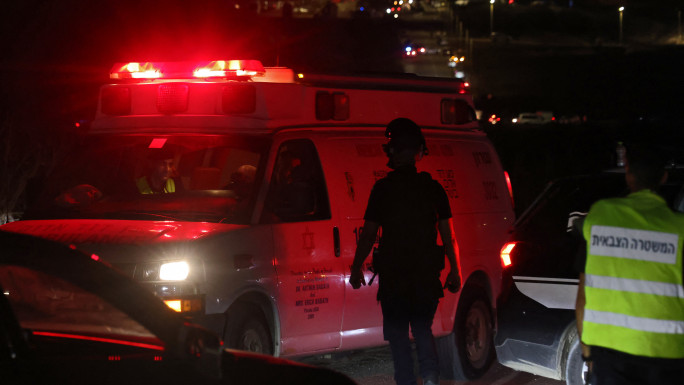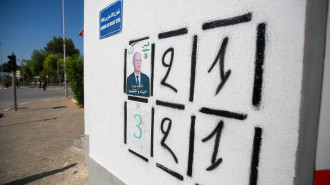
Could Iraq become a new front in Israel's regional war?
6 min read
Amid the focus on Israel’s escalating confrontation with Iran and its Lebanese ally, Hezbollah, a new front has also opened in Iraq.
On 6 October, Iranian-backed militias in Iraq - under the banner of the Islamic Resistance in Iraq (IRI) - claimed responsibility for a drone strike on Israel.
This followed two drones launched from Iraq on 25 September which targeted the southern Israeli city of Eilat. While one was intercepted, the other caused minor damage and two casualties. Two days later, the IRI claimed attacks on military positions in the Israeli-occupied Syrian Golan Heights.
Since the beginning of the war on Gaza, Iran-allied factions in Iraq have launched missiles and drones at Israel. Such attacks have resumed since Israel escalated its war on Hezbollah and Lebanon, and are likely to continue as both wars persist.
“The involvement of Iranian-backed militias in Iraq in the Israel-Iran confrontation signals Tehran’s strategic use of its regional proxies to exert pressure on Israel indirectly, without engaging in a direct military confrontation,” Muhanad Seloom, Assistant Professor in Critical Security Studies at the Doha Institute for Graduate Studies, told The New Arab.
Militias such as Kataib Hezbollah and Asaib Ahl al-Haq have launched multiple strikes targeting southern Israel and the occupied Golan Heights.
While the physical damage may be limited, these strikes underscore the increasing capabilities of these groups to penetrate Israel’s traditionally robust air defence systems and demonstrate Iran’s strategy of using allies to apply pressure on Israel.
Fanar Haddad, Assistant Professor at the University of Copenhagen, believes that these militias are likely to play only a minor role in confronting Israel.
“I do not think they have the ability to play a significant direct role against Israel itself. They do not have the numbers, the capacity, or the experience of, say, Hezbollah when it comes to confronting Israel,” he told The New Arab.
“I also think that, despite their rhetoric, their effectiveness, focus, and utility are far more concentrated on Iraq and its immediate vicinity than Israel. There is also an awareness that they stand to lose too much in the event of provoking a sustained Israeli-American response, which would jeopardise their political, economic, and military gains in Iraq.”
Since Israel launched its assault on Gaza in October 2023, these militias have openly declared their intention to escalate operations, increasing pressure on Israel as part of the Iranian-led ‘Axis of Resistance,’ which includes not only Hezbollah but also the Houthis in Yemen and Hamas in Gaza.
|
|
A tightening Iran-led axis?
Following the US-led invasion of Iraq in 2003 and the ousting of Saddam Hussein, Iranian-backed militias capitalised on the resulting power vacuum and gained significant influence over Iraq’s political and security systems.
Since 2014, following a fatwa by Iraq’s Grand Ayatollah Ali al-Sistani calling for the defence of Iraq against the Islamic State (IS), the Popular Mobilisation Forces (PMF), known as Hashd al-Shaabi in Arabic, were formed and have evolved from a coalition of militias into an official state apparatus.
While these militias operate with increasing autonomy within Iraq’s formal security apparatus, they have been instrumental in boosting Iran’s broader regional ambitions. Since the declared defeat of IS in December 2017, the PMF has shifted its focus to expanding its control in Iraq.
When tensions between Iran and the US escalated in 2018, following Washington’s withdrawal from the 2015 Iran nuclear agreement under Donald Trump, some of these factions targeted American military assets in Iraq to pressure US forces to leave the country.
Over the past year, the PMF has deepened its ties with Iran’s Islamic Revolutionary Guard Corps (IRGC), equipping militias such as Kataib Hezbollah with advanced Iranian drone technology and missile systems.
Many are equipped with small arms, drones (UAVs), mortars, and rockets, as well as more advanced ballistic and cruise missiles supplied by Iran. This has increased their capacity to strike Israeli targets with greater precision.
However, the militias’ effectiveness has been hindered by internal divisions and the lack of a common command structure.
Some factions have pushed for more direct action against Israel, while others have prioritised maintaining their political and military influence in Iraq.
“While some factions have sought to push for more action against Israel, others have called for calm and a focus on Iraqi stability first,” Renad Mansour, Senior Research Fellow at Chatham House and the University of Cambridge, told The New Arab.
He noted that groups such as Kataib Hezbollah and Kataib Sayyid al-Shuhada are more willing to fight but are limited by pressure from both Iran and Iraq to hold back, further reducing their capacity to threaten Israel.
Iraq’s government has sought to avoid being caught up in the confrontation, with concerns it could jeopardise its post-war stability and attempts to rebuild the country.
On Sunday, Iraqi Foreign Minister Fuad Hussein said Baghdad was against any "expansion towards the Islamic Republic of Iran and (Israel's) exploitation of Iraqi airspace", during a visit by his Iranian counterpart Abbas Araghchi.
"The continuation of the war and its expansion towards the Islamic Republic of Iran and [Israel's] exploitation of Iraqi airspace as a corridor is completely unacceptable and rejected," he said.
How Israel may respond
At present, Israel’s primary focus remains on Lebanon and Gaza, where many of its military assets are already committed. As a result, challenges from Iraqi militias have not yet become a priority.
While Israeli officials have vowed to “respond at a time and place of their choosing,” a growing number of attacks from Iraq may force Israel to adjust its strategy.
Israel has already responded to drone attacks from the Houthis in Yemen, striking the vital port in the city of Hodeidah. This suggests that an Israeli military response targeting Iraq is not out of the question.
Such discourse has already emerged within Israel. Last week, the right-wing Israeli Channel 14 published a photo of the prominent Iraqi religious leader Ayatollah Ali al-Sistani as part of a list of potential assassination targets. This prompted the Kataib Sayyid al-Shuhada faction to declare that al-Sistani is "above all red lines".
For now, however, there is no clear indication that Israel is planning immediate military action in Iraq. As Muhanad Seloom argued, these factions are more of a strategic nuisance to Israel rather than an immediate threat that would prompt a large-scale response.
“This does not mean that Israel would not opt for targeted killings of Iraqi militia leaders to establish deterrence and weaken Iranian proxy groups in Iraq,” he added.
Following Iran’s anticipated attack on Israel on 1 October, in response to the killing of Hamas leader Ismail Haniyeh, when Tehran fired over 200 missiles at Israel, the opening of an Iraqi front underscores how Iran’s regional allies are intensifying pressure on Israel.
As Israel prepares to respond to the 1 October attack, both the nature of its strike and any subsequent Iranian response will shape the escalating confrontation, with Iraqi militias likely to remain involved in any further clashes.
While militias within the PMF have various interests - from internal affairs to directly confronting Israel - some factions may focus on increasing the pressure on Israel.
And with Iraqi militias showing their growing capabilities, and Israel’s multi-front war showing no signs of abating, Iraq could potentially be pulled deeper into an escalating regional confrontation.
Jonathan Fenton-Harvey is a journalist and researcher who focuses on conflict, geopolitics, and humanitarian issues in the Middle East and North Africa.
Follow him on Twitter: @jfentonharvey
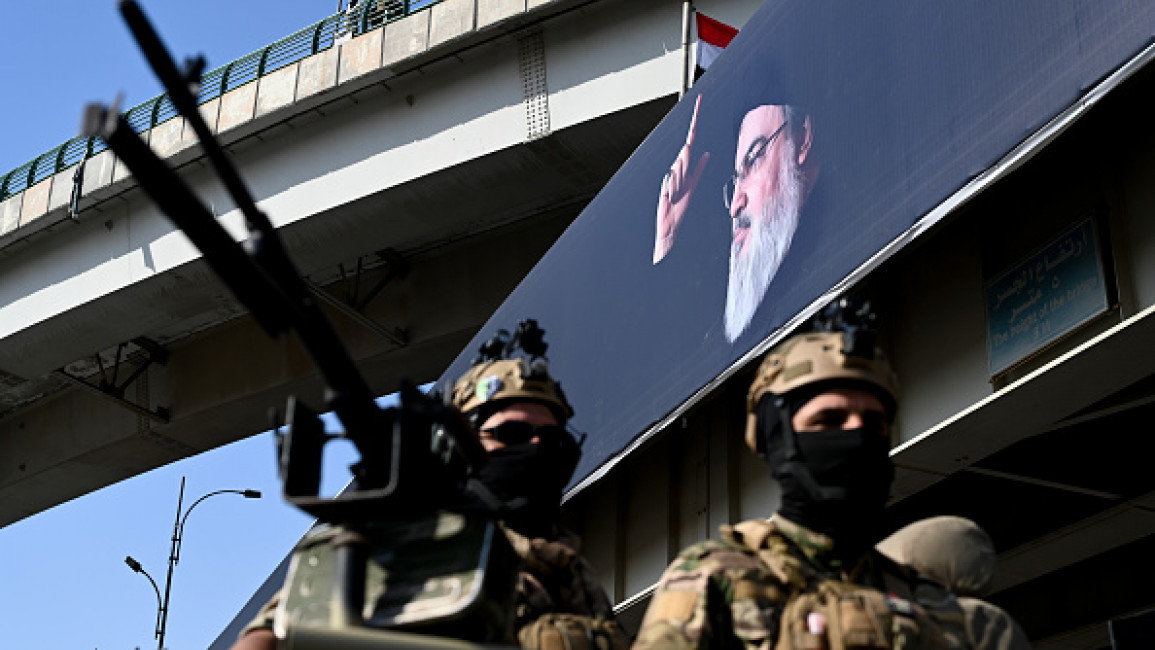
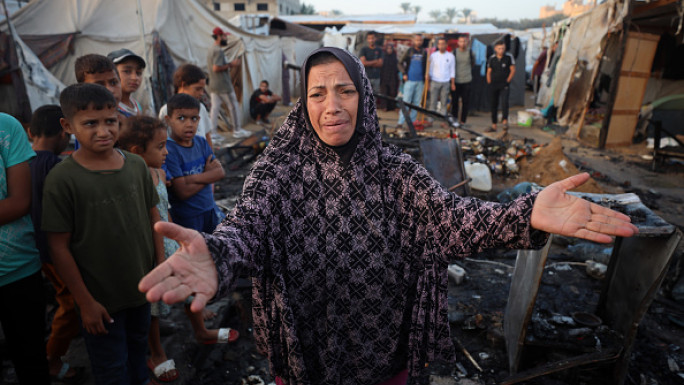
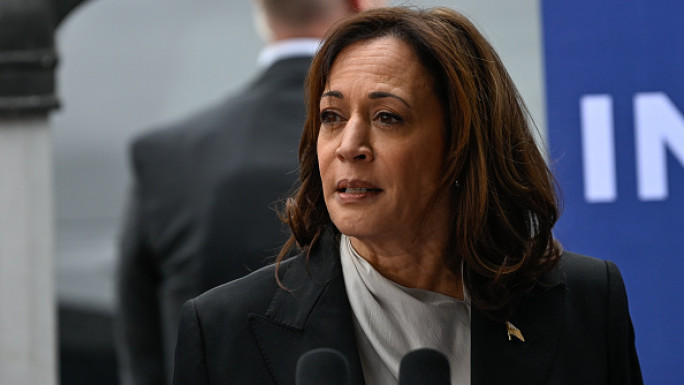
![The leader of planned Albanian Muslim mini-state expresses support for Israel [Getty]](/sites/default/files/styles/image_684x385/public/2171709386.jpeg?h=0e714722&itok=RErwaBrE)
